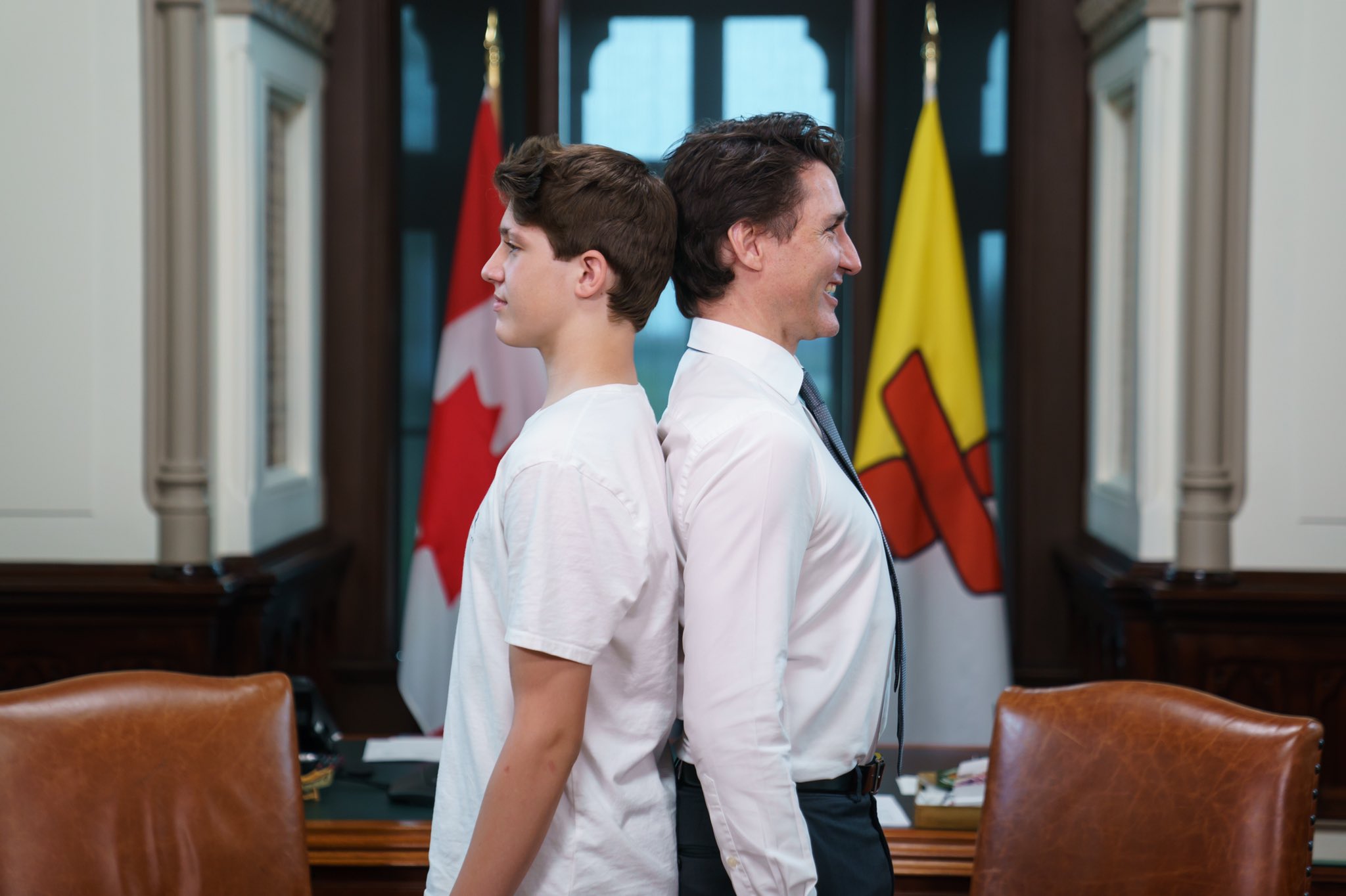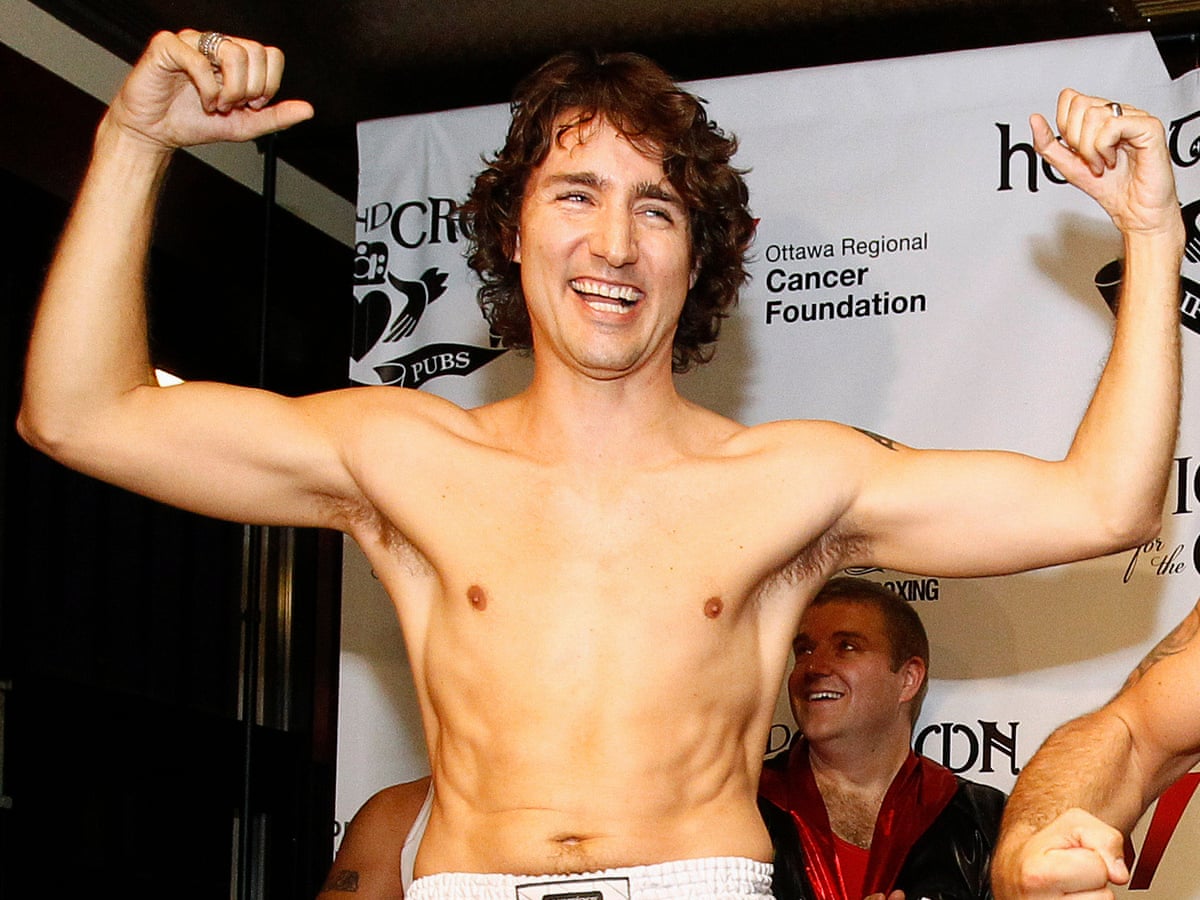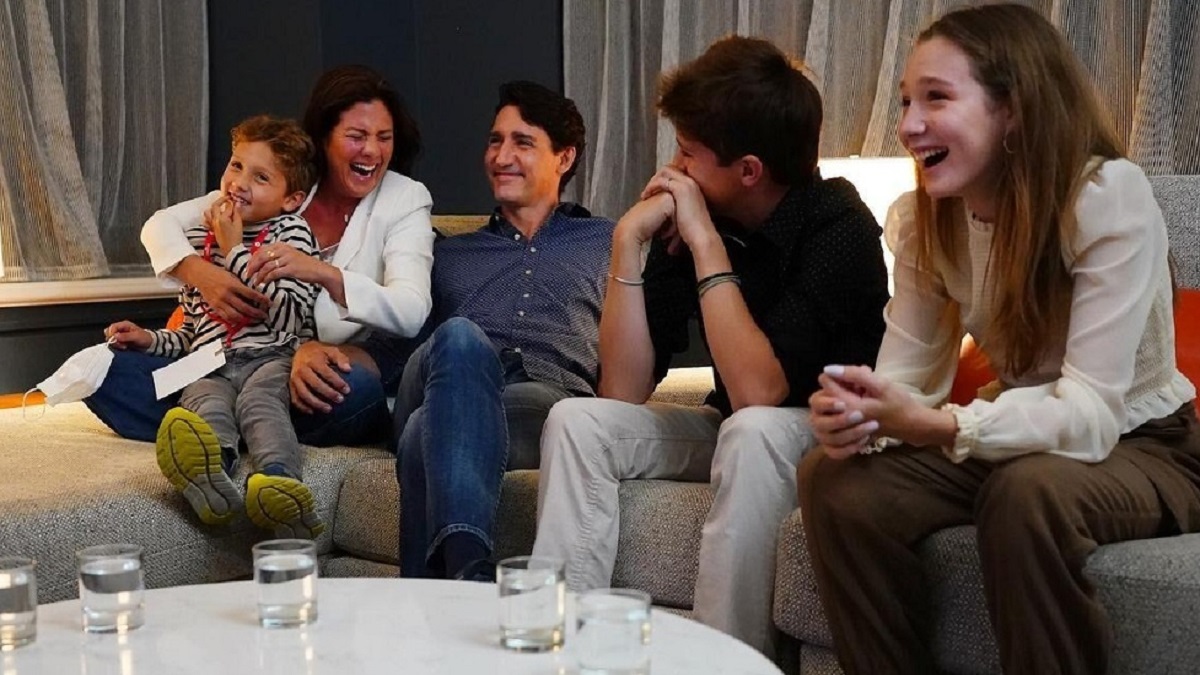Justin Trudeau has captured global attention with his progressive policies and charismatic leadership. As the 23rd and current Prime Minister of Canada, his age often becomes a topic of discussion in both political and public spheres. Understanding Justin Trudeau's age is essential to comprehending his journey, leadership style, and the impact he has on Canadian politics.
Born into a family with deep political roots, Justin Trudeau's rise to power is a fascinating story. His age plays a significant role in shaping his approach to governance and his ability to connect with younger generations. In this article, we will delve into his age, its significance, and how it influences his leadership.
This article aims to provide a comprehensive overview of Justin Trudeau's age, exploring its relevance in his political career and the broader context of Canadian politics. By the end of this piece, you will have a deeper understanding of how his age contributes to his leadership and the challenges he faces.
Read also:Who Is Rei Dos Coins The Ultimate Guide To Understanding This Rising Star
Biography of Justin Trudeau
Early Life and Family Background
Justin Pierre James Trudeau was born on December 25, 1971, making him 51 years old as of 2023. He hails from a prominent political family, being the eldest son of the late Pierre Elliott Trudeau, who served as Canada's 15th Prime Minister from 1968 to 1979 and again from 1980 to 1984. His mother, Margaret Sinclair Trudeau, was a well-known figure in Canadian society.
Trudeau's upbringing was deeply influenced by his father's political career, exposing him to the complexities of governance from an early age. Growing up in Ottawa, the capital city, provided him with a unique perspective on national and international affairs.
Data and Facts About Justin Trudeau
| Full Name | Justin Pierre James Trudeau |
|---|---|
| Date of Birth | December 25, 1971 |
| Age | 51 years old (as of 2023) |
| Place of Birth | Ottawa, Ontario, Canada |
| Profession | Prime Minister of Canada |
| Political Party | Liberal Party of Canada |
Justin Trudeau Age: A Closer Look
Justin Trudeau's age of 51 places him in a generation that bridges the gap between the Baby Boomers and Generation X. This demographic positioning allows him to relate to a wide range of voters, from older Canadians to younger generations. His age has been a factor in his ability to implement policies that resonate with diverse age groups.
Significance of His Age in Politics
- Modern Leadership: Trudeau's age makes him one of the younger leaders in the G7, enabling him to embrace modern technologies and communication methods.
- Intergenerational Appeal: His age helps him connect with both traditional voters and younger Canadians who prioritize progressive policies.
- Experience and Energy: At 51, Trudeau strikes a balance between youthful energy and the wisdom gained from years of political experience.
Trudeau's Political Career
Early Political Involvement
Justin Trudeau entered politics in 2008 when he was elected as the Member of Parliament for Papineau, Quebec. His political journey accelerated when he became the leader of the Liberal Party of Canada in 2013. His age during these early years of political involvement positioned him as a fresh face in Canadian politics, bringing new ideas and perspectives.
Prime Ministership
In 2015, Justin Trudeau became the youngest Prime Minister of Canada in over 50 years when he won a majority government. At the age of 43, he brought a sense of renewal to Canadian politics, focusing on issues like climate change, gender equality, and indigenous rights.
Impact of Age on Leadership Style
Progressive Policies
Trudeau's age has influenced his leadership style, emphasizing progressive policies that appeal to younger generations. His focus on climate action, LGBTQ+ rights, and social justice reflects the values of modern Canadians. According to a report by the Pew Research Center, younger leaders like Trudeau often prioritize social and environmental issues.
Read also:How Long Does A Hard Inquiry Affect Credit Score A Comprehensive Guide
Global Perspective
Being in his early 50s, Trudeau maintains a global perspective, engaging with world leaders on issues such as climate change and international trade. His age allows him to adapt to rapidly changing global dynamics, making him an effective advocate for Canada on the international stage.
Challenges Faced Due to Age
Criticism and Skepticism
While Trudeau's age has been an asset in many ways, it has also drawn criticism from opponents who question his experience. Some critics argue that his youthful energy may come at the cost of seasoned judgment. However, supporters point to his achievements in areas like healthcare, education, and environmental policy as evidence of his capability.
Managing Generational Expectations
As a leader in his 50s, Trudeau must navigate the expectations of multiple generations. Balancing the needs of older Canadians with the aspirations of younger voters requires a nuanced approach, which his age helps him achieve.
Public Perception of Justin Trudeau's Age
Positive Reception
Many Canadians view Trudeau's age positively, seeing it as a symbol of hope and progress. His ability to connect with younger voters has been a key factor in his political success. A survey conducted by Nanos Research indicates that a majority of Canadians appreciate his modern approach to governance.
Challenges in Perception
Despite widespread approval, Trudeau faces challenges in perception, particularly from older generations who may prefer more traditional leadership styles. However, his age continues to be a strength in engaging with younger demographics.
Justin Trudeau Age in Context
Comparative Analysis
In comparison to other world leaders, Justin Trudeau's age places him among the younger cohort. Leaders like Emmanuel Macron of France and Jacinda Ardern of New Zealand share similar age demographics, emphasizing the trend of younger leadership in global politics. This trend is supported by data from the United Nations, which highlights the increasing importance of youth in political decision-making.
Historical Perspective
From a historical perspective, Trudeau's age aligns with a shift towards younger leadership in Canada. His father, Pierre Elliott Trudeau, was also a relatively young leader when he first took office. This generational continuity underscores the importance of youthful energy in driving political change.
Future Prospects and Legacy
Continued Leadership
As Justin Trudeau enters his second decade in politics, his age positions him well for continued leadership. At 51, he has the potential to shape Canadian politics for years to come, building on his legacy of progressive policies and inclusive governance.
Building a Legacy
Trudeau's legacy will be defined by his ability to address pressing issues like climate change, healthcare reform, and economic inequality. His age provides him with the time and energy to tackle these challenges, leaving a lasting impact on Canada and the world.
Conclusion
In conclusion, Justin Trudeau's age of 51 plays a crucial role in his leadership style and political success. From his early political involvement to his current role as Prime Minister, his age has been both an asset and a challenge. By embracing modern values and connecting with diverse generations, Trudeau has established himself as a leader for the future.
We invite you to share your thoughts on this article and explore more content on our website. Your feedback is invaluable in helping us provide the best information possible. Thank you for reading, and we hope you found this article informative and engaging.
Table of Contents
- Biography of Justin Trudeau
- Justin Trudeau Age: A Closer Look
- Trudeau's Political Career
- Impact of Age on Leadership Style
- Challenges Faced Due to Age
- Public Perception of Justin Trudeau's Age
- Justin Trudeau Age in Context
- Future Prospects and Legacy


